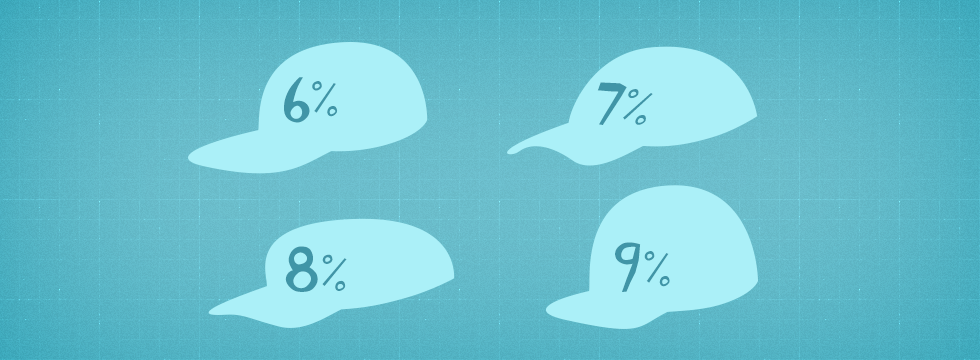I sat down for lunch at Union 613 with Ottawa realtor Dimitrios Kalogeropoulos (a.k.a Agent DK) a couple of days ago and took the opportunity to discuss income properties and some other real estate stuff in the Nation’s Capital. Agent DK works with Royal Lepage and returned to Ottawa from Toronto last year (where the market is quite different). He’s a fountain of knowledge and full of good tips when it comes to rental properties in Toronto and Ottawa, and he’s a guru to any potential landlord looking to add to his or her property portfolio. He brought up a few really great points over a discussion about what to look for when purchasing an income property and debunked some buying myths along the way. One myth in particular is that the only real thing that matters when sizing up a property is the cap rate.
First off, what is a cap rate? I’ll explain…
A cap rate is a measure of the purchase price of an investment property compared to the net income you make from that property. Or, the rate of return on an investment property based on the expected income that the property will generate. This is calculated by dividing the income the property will generate (after fixed costs and variable costs) by the total value of the property.
If you want to get technical, it is basically the discount rate of a perpetuity.
But if you want it in layman’s terms, you could consider it the official return on the property if you bought it outright in cash. The amount after fixed costs — what is typically referred to as the net operating income — that would go into your pocket with no loan to service. This amount (if you had no mortgage) would go into your pocket. This is how you compare the placement of your money to other investment vehicles like RRSPs, stocks, etc. For the majority of investors, the cap rate is what you would use to determine how much you have to service a mortgage with — and if you play your cards right — what you have left over.

Agent DK brought up that the capitalization rate on a property — while important — is not the only thing you should be looking at. Different areas of any given city will tend to have different cap rates and they’ll vary quite a bit. This is why you should also consider the following:
- Tenant Quality – this is a huge one. Inheriting tenants is the passage of a relationship between one individual to another. Reliable tenants who take care of a property, who are reasonable, and who pay appropriate market rent should be a big consideration when mulling over a purchase. Evictions and chasing rent cost money, so if that’s what you’re in store for maybe you should think twice. Just because a property has a big cap rate, it doesn’t mean you can’t suddenly find yourself in a difficult situation with bad renters in exchange for that big return. Is it worth it? I have a friend who endures 6 enraged voicemails a month from a tenant who can’t control his emotions, but he pays the rent on time and contributes to an 11% cap rate on a triplex. Yikes.
- Property Condition – houses, like anything else, deteriorate. It’s inevitable. Some houses will be more expensive to fix than other ones. What condition is the place you’re buying in? If it’s a fixer-upper then you’ll have some work to do, including potentially updating the flooring. For example, vinyl flooring can be a cost-effective and durable option for a renovation. But if it’s a turnkey property your overall maintenance expenses will be low. A big cap rate is great, but not if you’re looking down the barrel of a major renovation or a glaring structural issue that will need to be eventually addressed.
- Appreciation Potential – this is another huge one and particularly applies to areas of a city that might be improving, gentrifying, or seeing other commercial development that might have benefits to residential property values in the next 2 to 5 years. Appreciation potential is equity potential, and equity potential is beneficial not only in net worth to the buyer, but in the ability to refinance and purchase something else — or pay off a personal residence.
- Income Potential – see above. If you can determine that a 10-20% increase in the rent roll is a possibility then this absolutely needs to be considered.
Now with all of this to say it’s important to be balanced in your view on a cap rate. The above are a few of the things you should consider with respect to a purchase. If you’re selling, you need to be sensible and recognize that the cap rate is an important part of the equation and undoubtedly will be seriously considered by any smart investor. If anything, this is the best way to ensure you’re maintaining a market-appropriate rent roll and keeping your building in good shape — regardless of where it is. A good rental property purchase will have a favourable rating on all of the above five points.
Questions? Comments? What are your thoughts on cap rate?
